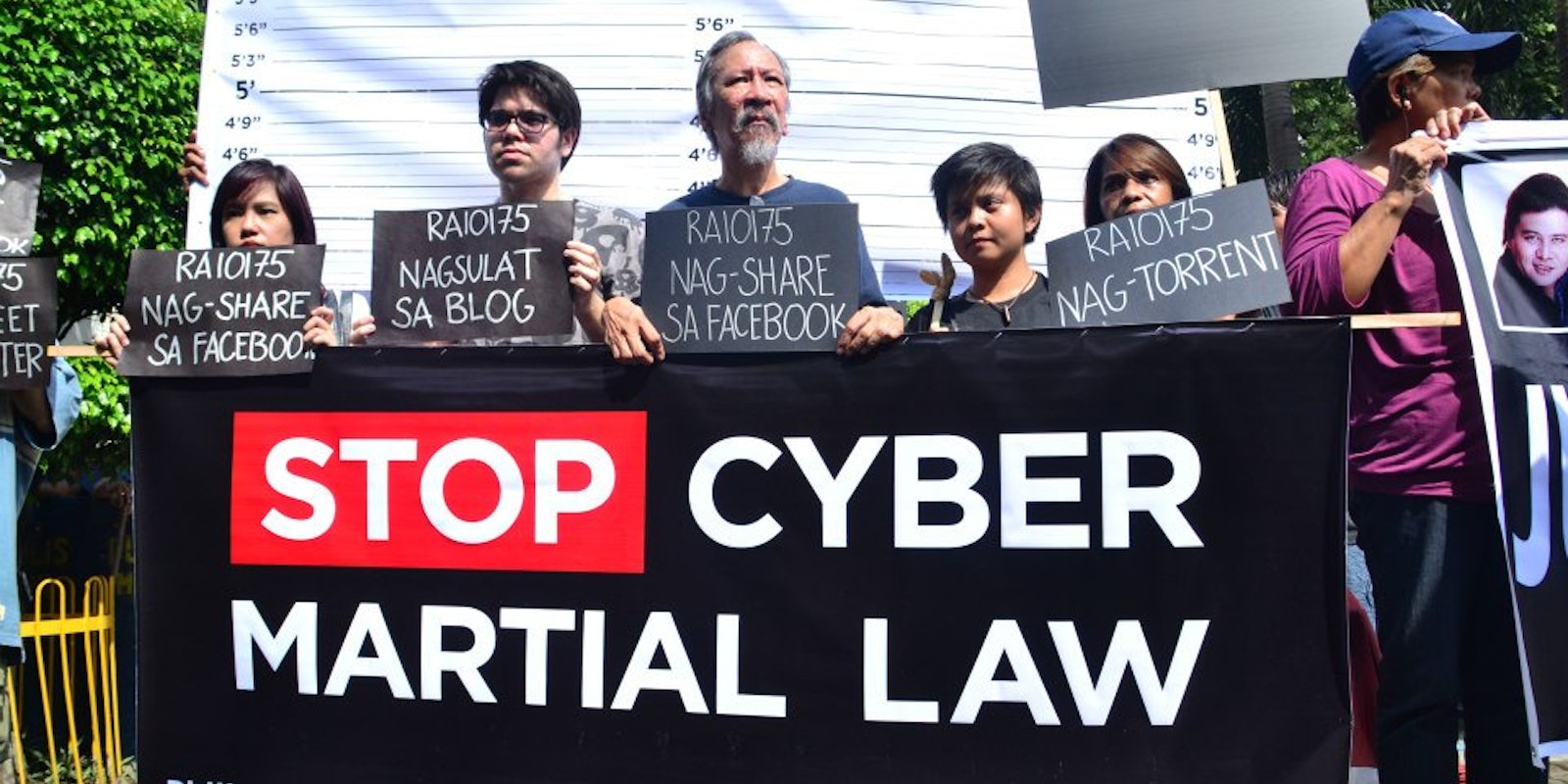The Supreme Court of the Philippines has put an indefinite hold on a controversial law that would, among other things, ban cybersex and porn.
A host of groups, particularly journalists, had resoundingly criticized the law, the Cybercrime Prevention Act of 2012, as broad and out of touch with how the Internet works. The Philippines’ National Union of Journalists, for example, called its definition of libel “a threat not only against the media and other communicators but anyone in the general public who has access to a computer and the Internet.”
After public outcry and at least 15 legal petitions against it, the Supreme Court put a 120-day hold on the law in October. According to Filipino journalist Jojo Malig, that was the Philippine Congress’s missed chance to amend the act to be more palatable: “120-day [temporary restraining order] on #cybercrimelaw was signal for lawmakers to amend it,” he tweeted. “They didn’t listen. Now, indefinite TRO.”
While it’s not uncommon for laws to be put on indefinite hold by the Supreme Court, some activists, while pleased with the law’s indefinite suspension, are calling for its full removal.
“To every netizen who fought the return of cyber martial law, I offer an ovation,” tweeted Filipino representative Teddy Casiño, possibly the most vocal critic of the cybercrime law in congress. “We won the battle today. Let us make sure we win the war!”
Photo by Irish Flores


